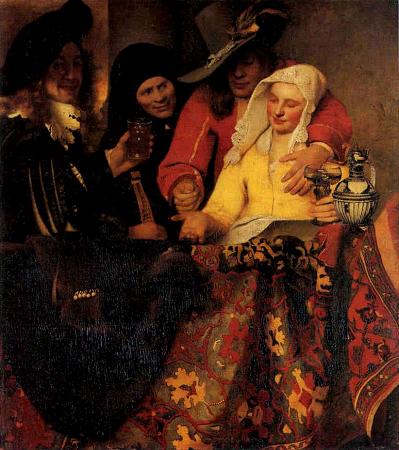Procuress. Procuring or pandering is the facilitation or provision of a prostitute or sex worker in the arrangement of a sex act with a customer. A procurer, colloquially called a pimp or a madam, is an agent for prostitutes who collects part of their earnings. The procurer may receive this money in return for advertising services, physical protection, or for providing, and possibly monopolizing, a location where the prostitute may engage clients. Like prostitution, the legality of certain actions of a madam or a pimp vary from one region to the next. Examples of procuring include: trafficking a person into a country for the purpose of soliciting sex. operating a prostitution business. transporting a prostitute to the location of their arrangement. deriving financial gain from the prostitution of another. Pimps and madams are diverse and variegated, depending on the strata in which they work, and they enter and leave the sex industry for a variety of internal and external reasons, such as family pressure, interactions with the police, and in some cases recruitment from peer sex workers. Procuring can take abusive forms. Madams/pimps may punish clients for physical abuse or failure to pay, and enforce exclusive rights to 'turf' where their prostitutes may advertise and operate with less competition. In the many places where prostitution is outlawed, sex workers have decreased incentive to report abuse for fear of self-incrimination, and increased motivation to seek any physical protection from clients and law enforcement that a madam/pimp might provide. The madam/pimp-prostitute relationship is often understood to be abusive and possessive, with the pimp/madam using techniques such as psychological intimidation, manipulation, starvation, rape and/or gang rape, beating, confinement, threats of violence toward the victim's family, forced drug use and the shame from these acts. Recent empirical research of madams/pimps, however, suggest that these assumptions about abusive relationships represent stereotyped oppression narratives that may only represent a small percentage of the relationships between madams/pimps and sex workers. In the U.S., madams/pimps can be arrested and charged with pandering and are legally known as procurers. This, combined with the tendency to identify pimping with African-American masculinity, may provide some of the explanation for why approximately three-fifths of all confirmed human traffickers in the United States are African-American men. In fact, it has recently been argued that some of the extreme examples of violence cited in the article below come primarily from such stereotyping supported by Hollywood screenwriters, selective and decontextualized trial transcripts, and studies that have only interviewed parties to sex commerce in institutions of rescue, prosecution, and punishment, rather than engaging rigorous study in situ. Where prostitution is decriminalized or regulated, procuring may or may not be legal. In jurisdictions where procuring is allowed, however, the forms permitted do not involve threats or other forms of non-consensual acts towards the prostitute or other persons; all procuring regulations differ widely from place to place. Procuring and brothels are legal in the Netherlands, Germany, Greece, New Zealand, and most of Australia and Nevada. Main article: Bedford v. Canada In Canada, there was a legal challenge to prostitution laws, which ended in the 2013 ruling of Bedford v. Canada. In 2010, Ontario Superior Court Judge Susan Himel overturned the national laws banning brothels and procuring, arguing that they violated the constitution guaranteeing the right to life, liberty and security. In 2012, Ontario Appeal Court reaffirmed the unconstitutionality of the laws. The case was appealed by the Canadian government, and was under trial in the Supreme Court of Canada in June 2013. On 20 December 2013, the Supreme Court unanimously struck down the remaining prostitution laws. As of 2014, the Canadian government began working on replacing those regulations with ones that do not violate the Canadian constitution. The United Nations 1949 Convention for the Suppression of the Traffic in Persons and of the Exploitation of the Prostitution of Others requires state signatories to ban pimping and brothels, and to abolish regulation of individual prostitutes.
more...





